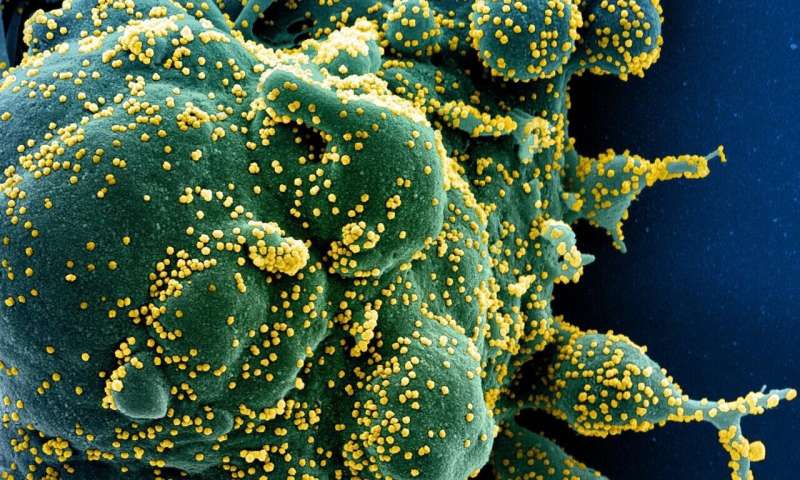Absence of natural killer cell receptor associated with severe COVID-19

The course and severity of COVID-19 in individual patients is largely influenced by the interaction between the SARS-CoV-2 coronavirus and the human immune system. Normally, the antiviral immune response of natural killer cells (NK cells) is an important step in combating viral replication in the early phase of the infection. On their surface, these killer cells have special, activating receptors, including the NKG2C receptor, which communicates with an infected cell via one of its specialized surface structures, HLA-E. This interaction results in the destruction of virus-infected cells. However, due to a genetic variation, approximately 4% of the population naturally lack the activation receptor NKG2C, and in 30% of the population this receptor is only partially available.
A research group from the Center for Virology at the Medical University of Vienna, led by Elisabeth Puchhammer-Stöckl, has now shown, in collaboration with doctors from Klinik Favoriten, that people with a partial or total absence of the NKG2C receptor are most likely to develop severe COVID-19.
In their study, which was recently published in the journal Genetics in Medicine, the authors showed that people who required hospitalization with COVID-19 were significantly more likely to exhibit the genetic variation underlying the lack of the receptor than people who only experienced mild disease. Puchhammer-Stöckl explains, "Absence of the receptor was particularly prevalent in COVID-19 patients being treated in intensive care units, irrespective of age or gender. Genetic variations on the HLA-E of the infected cell were also associated with disease severity, albeit to a lesser extent."
The current study therefore shows the major importance of NK-cell response in the battle against SARS-CoV-2 infection: "This part of the immune response could therefore also represent an important target for drugs that could help to prevent severe COVID-19 disease," explains the MedUni Vienna expert.
More information: Hannes Vietzen et al. Deletion of the NKG2C receptor encoding KLRC2 gene and HLA-E variants are risk factors for severe COVID-19, Genetics in Medicine (2021). DOI: 10.1038/s41436-020-01077-7

















